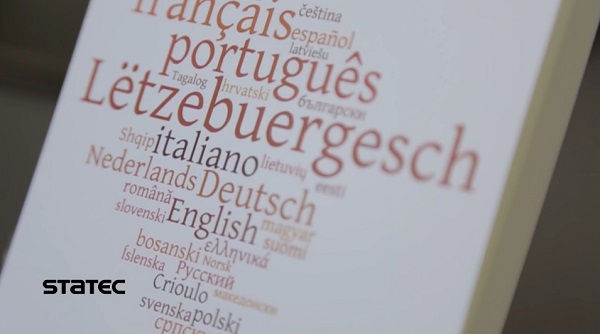
A new study by STATEC has determined French to be the most commonly spoken language in the Luxembourg workplace, used by 68.2% of the country's residents.
French was widely found in all economic private sectors, whilst Luxembourgish showed a stronghold in the public and para-public sectors, found to be the most used language in the army and in agriculture and spoken by 60.5% of residents at work. Portuguese (14.6%) meanwhile was heavily represented among artisans and unskilled workers, whilst English (28.5%) was widely experienced in occupations requiring a high level of formal education. German was used by 34.2%.
The group of those using only one language at work was the largest, at 42.3%, with an average of 2.1 languages used regularly in the workplace. With the exception of Luxembourgers, all nationalities were found most likely to speak French than Luxembourgish whilst at work. French, Luxembourgish and English are used to varying degrees by nationalities, whilst Italian and Portuguese was found to be almost exclusively used by their respective nationalities.
French showed a strong presence in virtually all major ISCO groups, particularly services (77%), senior management (76%) and unskilled workers (75%). According to STATEC, these three groups belonging to three individual skill levels illustrates the language's presence across the country's occupational spectrum. Meanwhile, German pervaded administrative (50%), intermediate (47%) and intellectual and academic (42%) occupations. It was found that in contrast to French and Portuguese, very few unskilled workers used German, at just 12%.
English was strongly linked to job hierarchy, most often used by executives (58%) and intellectual occupations (52%) and less so by unskilled workers (4%) and farmers (3%). Pilots were found to use English the most, at 93%.
As the different economic branches are not uniformly dispersed around the country, a strong geographic variation was also discerned. Luxembourgish was most strongly found in the rural commune of Boulaide near the Belgian border (90.0%); French was common in Leudelange (82.9%) due to the new business zone combining food production and food services and shops; German was unsurprisingly pervasive in the Moselle town of Grevenmacher (56.9%); Portuguese was widely found in the Vallée de l'Ernz (39.4%) which acts as the seat of several construction companies and the neighbouring town of Larochette; and English was widely reported in Sandweiler (52.3%) due to its close location to the airport.
Photo by STATEC








